Photographs: Vodafone Essar Ltd
The Indian Premier League's Season 2 will be forever remembered as the year of the ZooZoos.
Sure, we'll remember the remarkable turnaround of Adam Gilchrist and the Deccan Chargers. We'll remember our gracious hosts in South Africa. And most certainly we'll remember the 'Fake IPL Player', whose blog humorously plagued Shah Rukh Khan's Kolkata Knight Riders throughout the season.
But, more than anything else, we'll remember the ZooZoo, a ridiculously cute marketing campaign dreamed up by Ogilvy and Mather India and brought to life by ad-filmmaker Prakash Varma of Nirvana Films.
Yes, the iconic image of the league's sophomore season will be far removed from the pitch. ZooZoos are strange all-white alien-esque humanoids who run around on our television screens, chirping in their incomprehensible language and breaking into belly laughs at the drop of a hat. They're silly. They're funny. They're adorable.
Most importantly, they're a massive success and a viral marketing miracle.
How does an ad campaign become bigger than the game itself?
Image: A ZooZoo all ready to play cricketPhotographs: Vodafone Essar Ltd
On the Internet, ZooZoos have developed a near cult status. On Facebook alone ZooZoo fans total about 3 lakhs, when one adds up all the members of the different ZooZoo fan pages and groups.
That's more people than signed up on Facebook for anti-terrorism initiatives in the highly-charged post-26/11 environment.
That's more people than signed up for the much ballyhooed 'Pink Chaddi' campaign, in response to the Mangalore pub attack.
And it's astronomically more people than signed up to support various candidates in the recent Lok Sabha polls, despite the politicians' best efforts to make a splash online.
Streaming videos, pictures, stories, interviews -- anything and everything having to do with ZooZoos -- have generated significant net traffic. And now there's word of merchandising plans: cups, keychains, figurines, etc.
Clearly, we won't just remember ZooZoos. We'll study them. We'll dissect them. One day, young B-school students will doubtless invoke the ZooZoo when asked to answer the question:
How does an advertisement become bigger than the game itself?
One story/service explained per day, 30 days in total
Image: A ZooZoo declares his lovePhotographs: Vodafone Essar Ltd
So we know that the genius behind the ZooZoo is O&M India. The lucky client? Vodafone.
Yes, Vodafone, the same company who scored big with last year's most memorable IPL advertisement -- an adorable lil pug that jumped through puddles and chased after school-bound children.
This time around, Vodafone wanted to specifically focus on its many different product services, like voice SMSing, group texting and call diverting. So with the ZooZoo campaign, O&M executive creative director Rajiv Rao and his team of 25 worked to create a special alternate world where product stories and services could be told through the charming, lovable medium of the ZooZoo.
One story/service explained per day, 30 days in total. O&M did this to draw viewers into the ZooZoo world, so that they looked forward to and anticipated each new instalment.
Real people on real sets in real costumes
Image: On the sets of the ZooZoo shootingsPhotographs: Vodafone Essar Ltd
The idea didn't come to Rao's team immediately. For months they toyed with different concepts for months, until they homed in on the ZooZoo character as the deadline approached. Everyone packed up and flew to South Africa, where filming was done with the help of a local crew.
As for the look, O&M focused on two designs. One was a fat Mr Potatohead-style humanoid, while the other was a slimmed version with a giant head and scrawny limbs. The latter won out.
And the name ZooZoo, what significance does it hold? None. It just sounds cool. According to Rao, it goes with the character.
Though most people initially assumed the ZooZoos were merely a cartoonist's rendering, we've since learned that ZooZoos are in fact real people on real sets in real costumes.
The mistake is an easy one to make, as the ZooZoos and their world have a very surreal quality, as if from another planet. According to Rao, it was designed to look that way.
Thirty different ads for only Rs 30 million
Image: A ZooZoo tempts fate and losesPhotographs: Vodafone Essar
It turns out that animation was never really an option, as animation-work of that nature would have been from 10-15 times more expensive than a real shoot.
So, on only Rs 30 million (Rs 3 crore), O&M was able to finish 30 different ads. Each spot is roughly 20-30 seconds long.
In order to create the otherworldly animated effect, only women of slight build -- and occasionally children -- were cast as ZooZoos, to enhance the contrast between their big heads and bellies and their tiny limbs. The women came from Mumbai dancing troupes and ballet groups, which explains the ZooZoos' fluidity and grace, despite their goofiness.
The sets were done in neutral greys, to draw maximum attention to the ZooZoos. Varma then shot the spots in a high-speed format, which gave the impression of animation. Rao and Varma have said that the most difficult aspect was the artwork necessary to bring ZooZoos to life.
With the actors' real faces hidden by the hard foam headpieces, how would ZooZoos show emotion?
They decided to keep it simple, by pasting on exaggerated impressions to fit the ZooZoos emotional disposition. One minute the ZooZoos is super-happy with an ear-to-ear grin. The minute the ZooZoo is frightened, its mouth pursed in tight 'O'.
The web's most watched viral video
Image: The icon of Facebook's official ZooZoo fan clubPhotographs: Vodafone Essar Ltd
Are we overstating the case of the ZooZoo? Will viewers really remember Vodaphone's smorgasbord of different products and services? Or will they just remember the high jinks of these strange little fat-bellied egg-heads?
Perhaps it doesn't matter whether the specific services are remembered one way or another. Vodafone recognises a winner when they have one, and they've unleashed a full-on ZooZoo campaign.
There are ZooZoo-themed computer wallpapers, emoticons, e-cards, ring-tones, videos, a Twitter stream, etc -- all of this and more stemming from the original Rs 30 million advertisement campaign.
The ZooZoo dominates dinner table discussion, water cooler conversations and social networking web sites. The videos have been viewed over 3 million times in the past three weeks alone.
Visible Measures, a site that specialises in measuring the consumption and distribution of online video, says that the ZooZoo spots have been the web's most watched viral video two weeks running.
This is exemplary viral marketing in action.
ZooZoos, everyone loves them!
Image: The ZooZoo's treat has been spoiled by a wayward cricket ballPhotographs: Vodafone Essar Ltd
The ZooZoo campaign represents Vodafone's second impressive knock at the IPL. Last's season's irresistibly-cute-tiny-dog-chases-things campaign made the pug India's temporary canine of choice.
But although no animals were harmed in filming, the spots still drew the ire of People for the Ethical Treatment of Animals, better known as PETA.
PETA claimed that the campaign helped spark a 'pug craze' in India that saw many first-time and possibly irresponsible dog owners splurge on a new pug puppy, only to give up on the commitment after a few months. They pointed to the increased presence of pugs in dog shelters as evidence.
Vodafone, by using bodysuit-clad humans in the ZooZoo spots, has pleased PETA. So much so, in fact, that the ZooZoo campaign was awarded by the animal rights group earlier this month.
ZooZoos, everyone loves them!

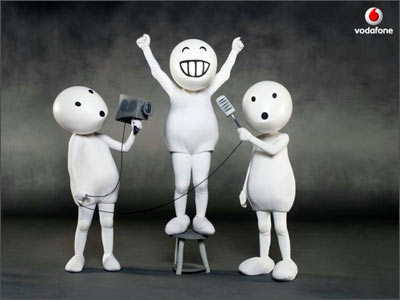
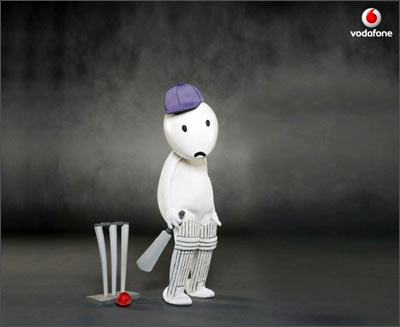
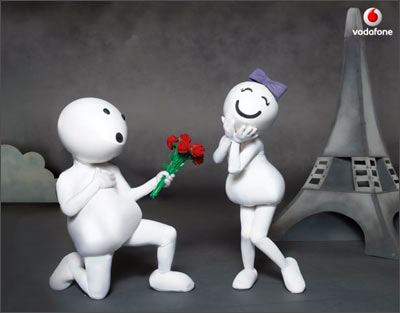
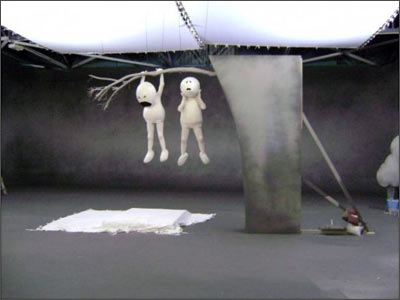
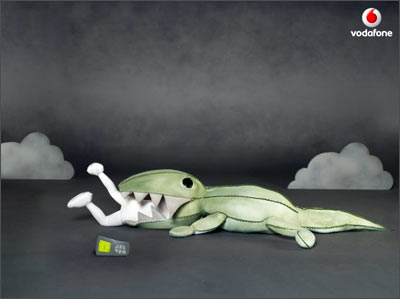
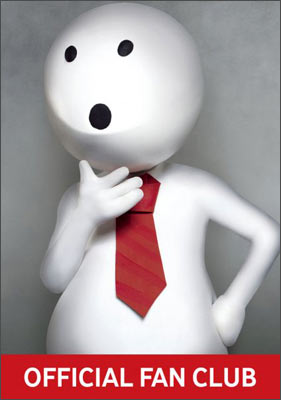
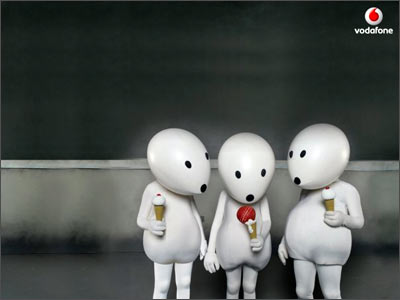
article